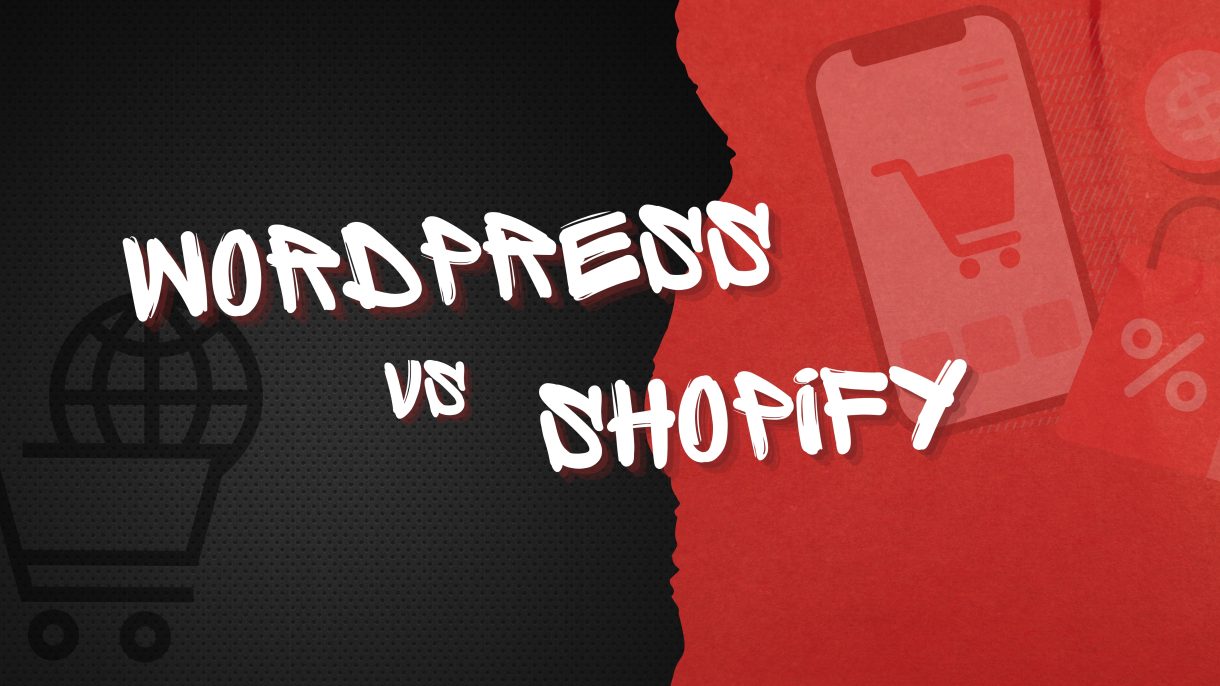Introduction
WordPress vs Shopify: Best Platform for Your E-commerce Store. Embarking on the journey of building an online store is exciting, and it comes with a crucial decision: selecting the right e-commerce platform. Two giants dominate the market: WordPress (with WooCommerce) and Shopify. Each platform has its strengths and weaknesses, catering to different needs and preferences. In this blog post, we’ll delve into the key features, pros, and cons of both platforms to help you make an informed choice for your e-commerce venture.
WordPress (with WooCommerce)
Flexibility and Customization
WordPress, coupled with the WooCommerce plugin, offers unparalleled flexibility. You have complete control over your store’s design, functionality, and data. This open-source platform’s extensive customization options make it ideal for businesses with unique requirements or those seeking a highly tailored experience.
Cost-Effectiveness
WordPress itself is free, but you’ll need to invest in hosting, a domain name, and potentially premium themes and plugins. While the initial setup might be more involved, the long-term cost can be lower than Shopify, especially for smaller stores.
SEO Friendliness
WordPress is renowned for its SEO capabilities. With various SEO plugins and tools like Yoast SEO and All in One SEO Pack at your disposal, you can fine-tune your store’s on-page elements, meta tags, and sitemaps, significantly improving your chances of ranking higher in search engine results.
Content Management
WordPress excels at content management, making it a great choice if you plan to have a blog or other content-rich elements alongside your online store. Its intuitive editor and vast library of plugins allow you to create and manage engaging content effortlessly.
Shopify
Ease of Use
Shopify is a hosted platform, meaning everything you need to run your store is provided in one place. This makes it incredibly user-friendly, even for those with limited technical skills. The intuitive interface and drag-and-drop functionality simplify store setup and management.
Scalability
Shopify is designed to grow with your business. It handles everything from hosting and security to payment processing, allowing you to focus on scaling your operations without worrying about technical limitations. Shopify can seamlessly accommodate your growing needs as your sales increase and your customer base expands.
App Store
Shopify offers a vast app store with thousands of extensions to enhance your store’s functionality. From marketing and inventory management to customer support and shipping, you can find apps to streamline various aspects of your business. This extensibility allows you to tailor your store to your specific requirements without the need for extensive coding.
24/7 Support
Shopify offers round-the-clock customer support, ensuring you have assistance whenever you need it. This can be invaluable, especially during critical moments or when facing technical challenges. Their dedicated support team is readily available to address your queries and help you resolve any issues promptly.
Choosing the Right Platform
The ideal platform for your e-commerce store depends on your specific needs and priorities. Consider the following factors:
- Technical Expertise: If you’re comfortable with website development and customization, WordPress might be a good fit. If you prefer a hassle-free solution, Shopify’s ease of use is a major advantage.
- Budget: Evaluate your budget for website development and ongoing maintenance. WordPress can be more cost-effective in the long run, but Shopify’s all-in-one pricing might be more manageable initially.
- Scalability: If you anticipate rapid growth, Shopify’s scalability and built-in features can support your expansion. WordPress can also scale, but it might require more technical intervention.
- Customization: If you have specific design or functionality requirements, WordPress’s flexibility is unmatched. Shopify offers customization options, but within certain limitations.
Comparison Table
| Feature | WordPress (with WooCommerce) | Shopify |
| Ease of Use | Moderate | High |
| Customization | High | Moderate |
| Cost | Lower long-term cost | Higher monthly fees |
| Scalability | Requires technical intervention | Built-in scalability |
| SEO | Highly customizable | Good built-in features |
| Support | Community-based | 24/7 dedicated support |
Conclusion
Both WordPress and Shopify are powerful e-commerce platforms, each with its own set of advantages. Carefully weigh your needs, budget, and technical capabilities to determine which platform aligns best with your business goals. Remember, the right choice will empower you to build a successful and thriving online store.
Still unsure which platform is right for you? Let our experts guide you. Book your free consultation now and take the first step towards building a successful online store.
Remember: The key to a successful e-commerce store lies not only in choosing the right platform but also in creating high-quality products, providing excellent customer service, and implementing effective marketing strategies.
Ready to launch your e-commerce store but need help choosing the right platform? We’re here to help! Schedule a free consultation with our team and get expert guidance on WordPress vs. Shopify, tailored to your business needs.
Button: Schedule A Free Consultation

